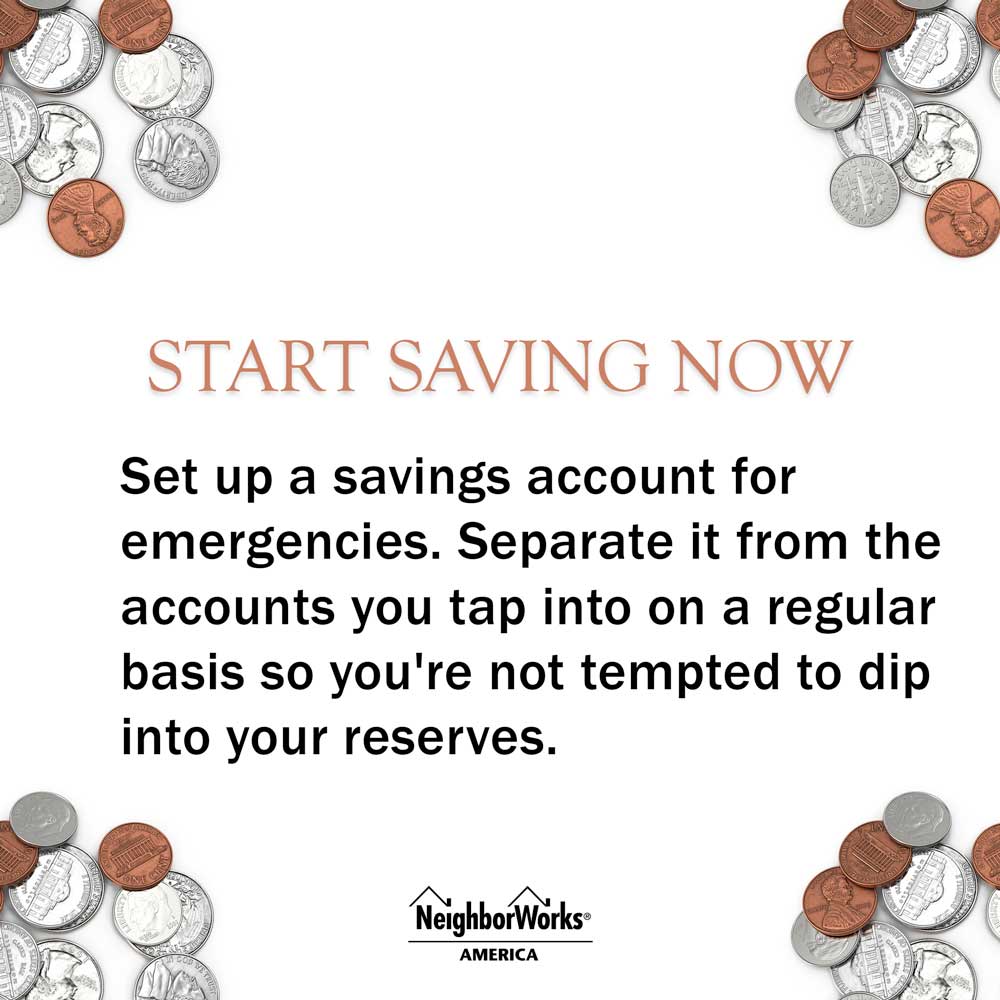Molly Barackman-Eder, Manager, Financial Capability
Despite a growing economy and near-record low unemployment rates, many consumers find it difficult to save money. Our consumer finance survey found that 38 percent of households don't have any emergency savings in place – whether to pay for an unexpected medical bill or the repair of a car needed to get to work or to fix a major household necessity like a roof or furnace. Our interview with Janet Raffel, senior manager of homeownership programs, highlights why it's critical for renters and homeowners to have a budget and how to take those first steps to build a "nest egg" of at least three months of savings.
Why is it so difficult for consumers to save?
A trendy topic in financial capability right now is "income volatility." Research shows that consumers have big swings in paycheck amounts from month to month, even if they don't change jobs. It's difficult to save when you have high-paying months and then might have to deplete your savings in lower-paying months. Being aware of what your basic costs of living are each month can help you figure out how much to have socked away for the low-income months.This also makes it hard to focus on making small steps towards a far-away goal. It's easier to think we can start saving money with the next paycheck and the same bias we all face for other life choices like exercising or eating more vegetables when your goal might not be reached for months or even years.
What first steps do you recommend to save more money and take better control of one's finances?
 Open a savings account that is separate from your checking account. Set up a direct deposit for your checks that includes a portion of each check going into your special savings account.
Open a savings account that is separate from your checking account. Set up a direct deposit for your checks that includes a portion of each check going into your special savings account.Consider using the nickname feature on your bank's website to give your savings account a name that reminds you of your goal. "Down Payment Fund" or "New Car" is a tangible reminder of what you're working toward.
Visualize your goal — imagine how your savings will help you achieve your dreams. For example, if your savings goal is to weather an emergency because protecting your family's well-being is important to you, picture your family smiling together, even if an unexpected bill arrives. It may make your goal more "real" to create an image of your goal by using photos, magazines, glue, markers, and other art supplies.
Reflect on how you've spent your money the last few months. When you look at your transactions online, are you spending money mostly on utilities and rent? What about more flexible categories like clothing or dining out? Use that information to come up with a realistic savings plan. Maybe in the beginning your goal will something manageable, like saving $10 from your restaurant budget and $10 from your clothing budget to add $20 a month to your savings account.
Be aware: If dining out is an important way to stay connected to your loved ones, you may have to rethink how you can accomplish that on a budget. Understanding why different parts of your budget are important to you will help you make your savings habit stick.
How is NeighborWorks America helping consumers with their finances?
NeighborWorks organizations offer financial coaching and education to prepare people for homeownership and other goals. Homeownership remains one of the most powerful ways for Americans to build wealth. Yet a recent survey from NeighborWorks America found that 71 percent of adults feel they don’t have enough money saved for a down payment. Additionally, consumers may want to save for their children’s college education or retirement, and financial coaches at NeighborWorks organizations are there to help.NeighborWorks America provides financial and technical assistance to NeighborWorks organizations with innovative financial capability programs that meet their individual communities' needs. NeighborWorks organizations provide services such as eviction prevention programs, matched savings incentives, and Volunteer Income Tax Assistance.
Are there any best practices and tips to save money? Any things to avoid?
Practice saying: "That's not in my budget this month. I'm saving up for a big goal." So you have this phrase ready when friends and family encourage you to splurge on something that might take you off track. Your example might even encourage others to pick up a savings habit!If you are getting a tax refund this year, put some part of it into your savings account. You don't have to save all of it, the key is to not spend all of it if you don't have to.
Reduce the need to make choices. Use direct deposit to put a set amount of money into your savings account with each paycheck, rather than letting yourself get in your own way.
If you get paid every week or every other week (rather than monthly or bi-monthly) use the "Five Friday Effect" to your advantage! Set your budget based on what you would get paid in a typical month with four Fridays. When you get an "extra" Friday, and therefore an "extra" paycheck, put it all directly into your savings account.

